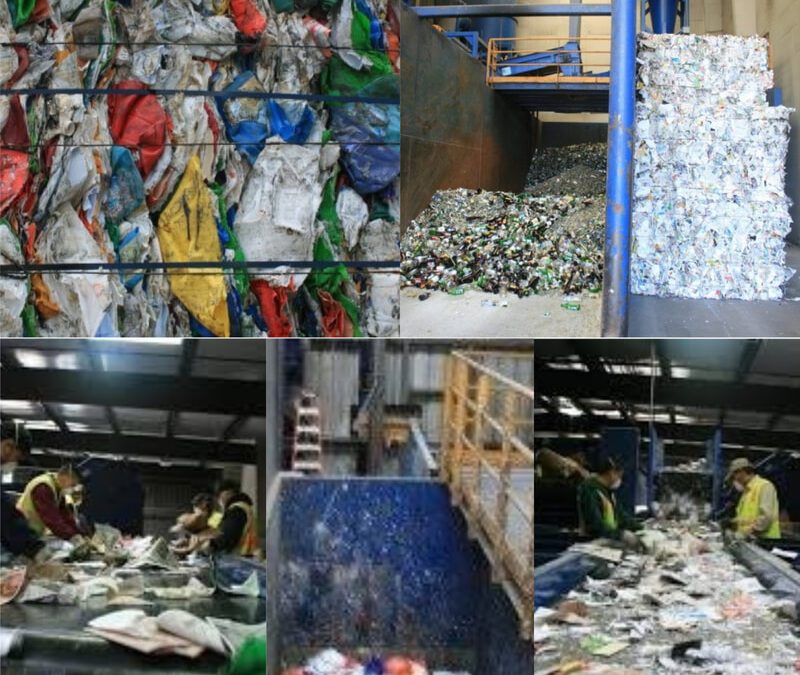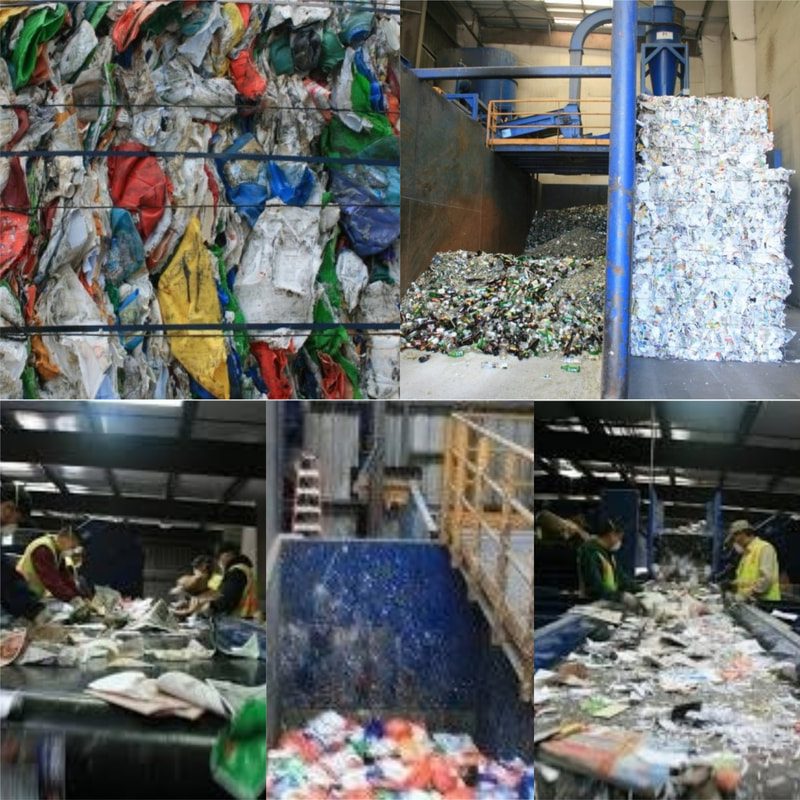Now it’s time for the Mill Valley City Council to decide if they’re willing to have residents and businesses make a change in how they organize their recycling to address what has become a global dilemma, as Mill Valley Refuse Service proposes shifting to so-called “dual-stream” recycling at a hearing on May 20.
The saga began in January 2018, when China, long the world’s dumping ground for recycling, enacted its “National Sword” policy, banning the import of most plastics and other materials headed for its recycling processors, which had handled nearly half of the world’s recyclable waste for the past quarter century. The move was an effort to halt a deluge of soiled and contaminated materials that was overwhelming Chinese processing facilities and leaving the country with yet another environmental problem — and this one not of its own making.
In the 16 months since that move, which essentially shut down what had been the industry’s biggest market, China’s plastics imports have plummeted by 99 percent, leading to a major global shift in where and how materials tossed in the recycling bin are being processed. That seismic shift has left waste management companies throughout the United States and beyond search for ways to dispose of all that recycling, with some ending up in landfills, incinerators, or likely littering the environment as rising costs to haul away recyclable materials increasingly render the practice unprofitable.
The end result has been skyrocketing costs. According to Mill Valley Refuse Service officials, the primary waste hauler for Southern Marin, the company saw recycling revenue shrink to zero in April 2017, and saw its per-ton fees to dispose of it elsewhere go from $4 two years ago to $59 to $72 to $83 today.
“Our efforts to find a better deal at various processing plants in the Bay Area failed,” says MVRS Principal Jim Iavarone. “Some plants closed their doors, while others refused to take on new customers. MVRS now dumps its single-stream recycling material at a transfer point at the Redwood Landfill in Novato, where it is loaded into semi-trucks and sent to a processing plant in San Jose.”
The company has identified disposing its recycled materials at Marin Sanitary Service in San Rafael, but that facility primarily processes dual-stream material, with paper put into one cart and all other recyclables into a separate cart. To test the willingness of customers to adapt to a dual-stream system, MVRS conducted a pilot project from September 2018 to December 2018. It released the results of that project in this report.
While MVRS can’t force jurisdictions to shift to dual-stream recycling, it hopes the move will be unanimous. “It’s really hard to imagine not making it unanimous one way or the other,” Iavarone told the Marin IJ. We have too many routes that cross jurisdictional lines. A route in Mill Valley also goes into Homestead and Almonte at times, and routes in Tiburon cross into Belvedere.”
If all eight jurisdictions the company services agree to switch, customers will be given second recycling bins. One bin will hold paper and cardboard, and the other will hold all other recyclables. The bins will be picked up curbside in alternating weeks.
The 411: The Mill Valley City Council considers a proposal to switch to dual-stream recycling. MORE INFO & STAFF REPORT. WATCH THE HEARING ONLINE HERE.


